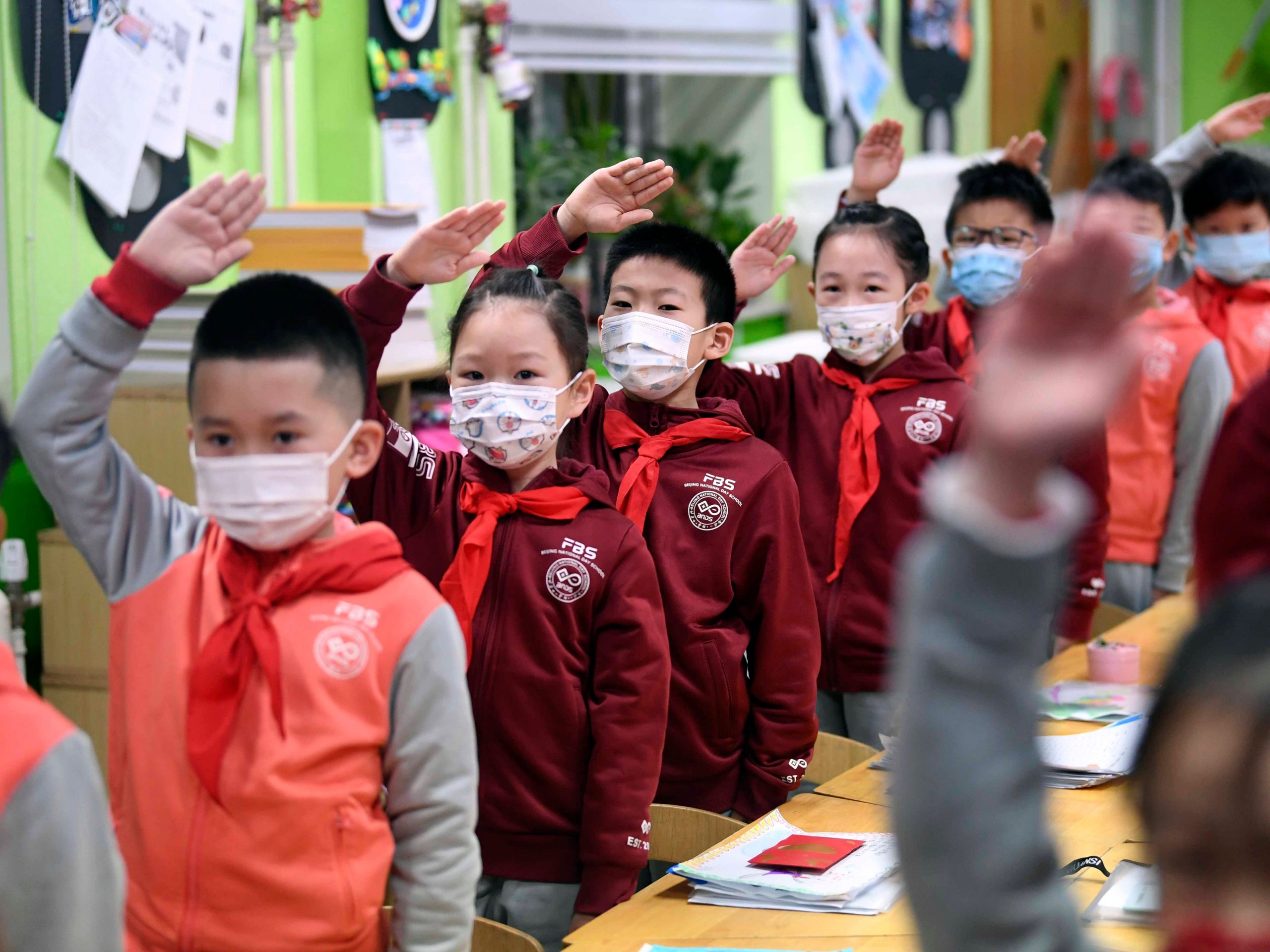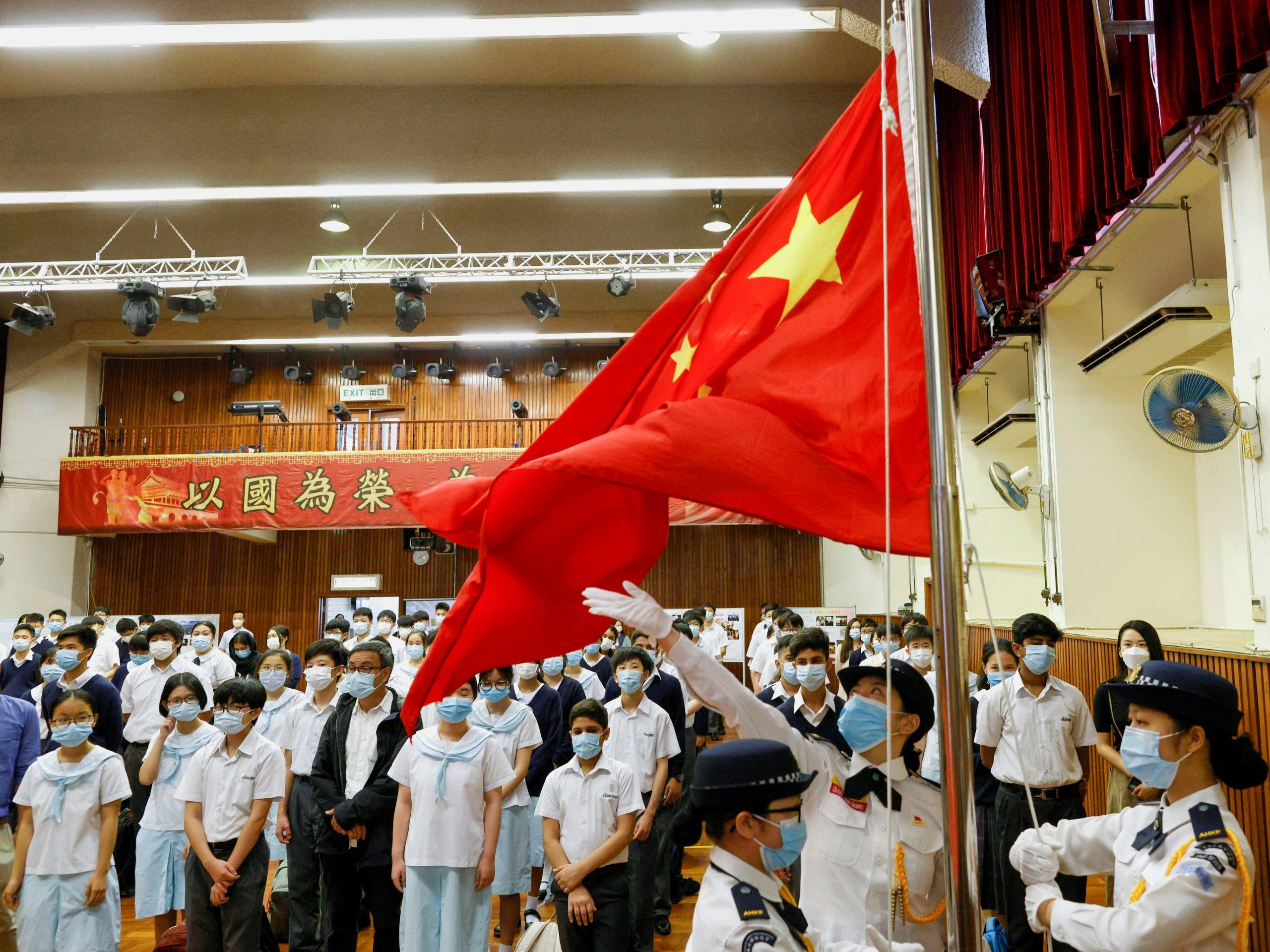
Cui Jun/Beijing Youth Daily/VCG via Getty Images
- Chinese authorities have ordered books "venerating Western ideas" to be removed from reading lists in primary and secondary schools.
- Bill Gates' and Steve Jobs' biographies could find themselves on the chopping block, along with other books promoting capitalism.
- In the run-up to the Communist Party's centennial, recommended books must focus on "Xi Jinping thought," the Chinese President's ideology.
- Visit Insider's homepage for more stories.
In China, wisdom from Bill Gates and Steve Jobs could be out – and "Xi Jinping Thought" is definitely in.
This month, Chinese authorities ordered books "venerating Western ideas" and "embracing all things foreign" to be removed from reading lists and libraries in primary and secondary schools.
Nikkei Asia reported that a large selection of titles – particularly those that contain information about political and cultural ideas from Japan and the Western world – could be removed. These include biographies of Gates and Jobs, who are both known in China as "poster children of US capitalism."
According to Chinese media outlet Epoch Times, all books that "worship foreigners" will be removed from schools' reading lists, a move that affects around 240 million elementary and middle school students across the country.
The Epoch Times cited the example of a Beijing middle school, which filled its bookshelves with Chinese president Xi Jinping's speeches. The school also stocked multiple copies of books that promote Xi and the Chinese Communist Party's ideology, including "Chinese Dream of the Great Rejuvenation of the Chinese Nation," a collection of speeches and documents by Xi.
The Chinese education system and the content of textbooks in schools are tightly controlled, and often reflect the Party's version of history. Textbooks only contain "patriotic" material and omit any mention of some historical events, such as the 1989 Tiananmen square pro-democracy protests.
History textbooks in the country have also stressed that the disputed islands off Okinawa - known as the Senkaku Islands to the Japanese and Diaoyu Islands to the Chinese - belong only to China, stressing the nation's territorial claim.
In addition to the removal of these books from schools' reading lists, Chinese media site People's Daily announced on Chinese social media platform Weibo that it would be releasing a reading list every month for adults to "learn about 100 glorious years of the Communist Party."
This reading list will be released in monthly editions in the run-up to the Party's 100th anniversary on July 1. The party will not hold a military parade on July 1 this year due to the pandemic, but the centennial will likely be commemorated with much pomp and ceremony.
This is not the first time China has removed books that it deems politically incorrect or unpatriotic.
In July 2020, Reuters reported that schools across the country took part in a nationwide exercise to pull books that the government considers "illegal" or "inappropriate." Reuters wrote at the time that hundreds of thousands of books were pulped, including books about Christianity and Buddhism, as well as George Orwell's novels "Animal Farm" and "1984."
China overhauls Hong Kong's education system with National Security Education Day, new subject in schools

Tyrone Siu/Reuters
The crackdown on books in China coincides with a move by the country to reform Hong Kong's education system.
The Hong Kong Free Press reported on March 23 that all schools in the city would be given a 48-volume box set of books entitled "My Home is in China." The books were distributed along with a reading list of around 100 books on traditional Chinese culture.
The SCMP reported that Hong Kong's education secretary, Kevin Yeung, said two sets of books were provided to each primary school, and one set to each secondary school, to "foster a sense of patriotism in students."
In turn, the Hong Kong Education Bureau announced on March 31 that it would be replacing "liberal studies" with a subject called "citizenship and social development."
As reported by the South China Morning Post, the education bureau said the new subject will educate Hong Kong's youth on "Chinese national consciousness," by teaching students about the Chinese constitution and China's five-year plan.
And on April 15, schools in Hong Kong marked "National Security Education Day," complete with Chinese flag-raising ceremonies.